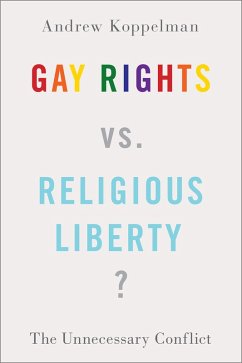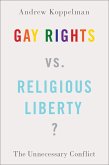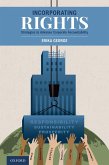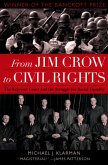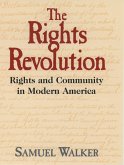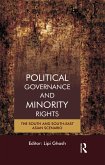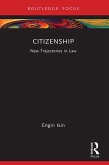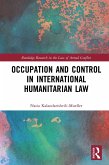Should religious people who conscientiously object to facilitating same-sex weddings, and who therefore decline to provide cakes, photography, or other services, be exempted from antidiscrimination laws? This issue has taken on an importance far beyond the tiny number who have made such claims. Gay rights advocates fear that exempting even a few religious dissenters would unleash a devastating wave of discrimination. Conservative Christians fear that the law will treat them like racists and drive them to the margins of American society. Both sides are mistaken. The answer lies, not in abstract principles, but in legislative compromise. This book clearly and empathetically engages with both sides of the debate. Koppelman explains the basis of antidiscrimination law, including the complex idea of dignitary harm. He shows why even those who do not regard religion as important or valid nonetheless have good reasons to support religious liberty, and why even those who regard religion as a value of overriding importance should nonetheless reject the extravagant power over nonbelievers that the Supreme Court has recently embraced. Koppelman also proposes a specific solution to the problem: that religious exemptions be granted only to the few businesses that are willing to announce their compunctions and bear the costs of doing so. His approach makes room for America's enormous variety of deeply held beliefs and ways of life. It can help reduce the toxic polarization of American politics.
Dieser Download kann aus rechtlichen Gründen nur mit Rechnungsadresse in A, B, BG, CY, CZ, D, DK, EW, E, FIN, F, GR, HR, H, IRL, I, LT, L, LR, M, NL, PL, P, R, S, SLO, SK ausgeliefert werden.

